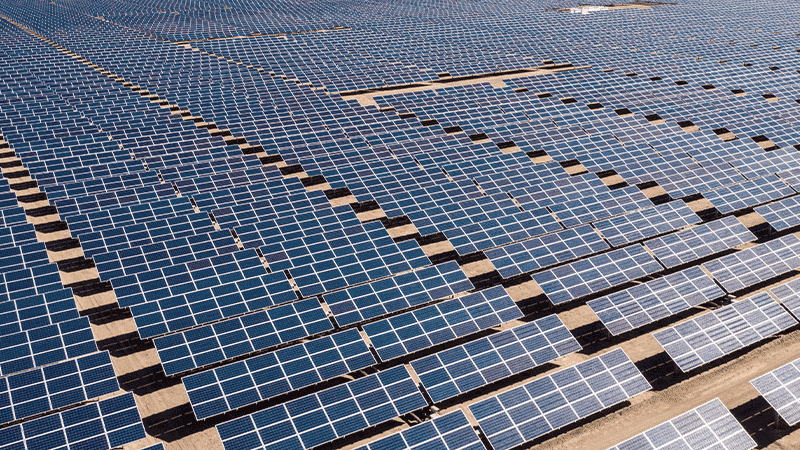Federal Council enacts ordinance amendment to implement the solar offensive

At its meeting on 17 March 2023, the Federal Council adopted amendments to the Energy Ordinance, the Energy Promotion Ordinance and the Electricity Supply Ordinance. These amendments will enter into force on 1 April 2023. They enable the implementation of the amendments to the Energy Act passed by Parliament, which have been in force since 1 October 2022 (urgent measures for the short-term provision of a secure electricity supply in winter, solar offensive).
With the amendments to the Energy Act, Parliament facilitates the approval of large-scale photovoltaic plants and establishes a subsidy for them with a one-time payment of up to 60 percent of the investment costs. These facilitations apply until these new large-scale photovoltaic plants allow a total annual production of a maximum of 2 terawatt hours (TWh) throughout Switzerland. The amendments to the Energy Act are limited until 2025.
The amendments to the Energy Ordinance, the Energy Promotion Ordinance and the Electricity Supply Ordinance adopted by the Federal Council on 17 March 2023 concern the implementation of Article 71a of the Energy Act (production of additional electricity from large-scale photovoltaic plants). DETEC had conducted a public consultation on this from 5 to 16 December 2022. The Federal Council has now laid down the following principles in the ordinance:
Expansion threshold 2 TWh: The threshold of 2 TWh is determined by the production of the legally approved projects. The cantons shall report to the Swiss Federal Office of Energy (SFOE) on an ongoing basis on the planned projects and their status from the time of the public invitation to tender to the time of commissioning. The SFOE maintains a publicly accessible and continuously updated list of this information.
Exclusion of crop rotation areas: Installations on crop rotation areas are excluded from the scope of Article 71a. This prevents these PV systems from competing with food production.
Building permit: The building permit must be issued by the canton. This requires the consent of the siting municipality and the landowners. As part of the building permit, the canton must also stipulate the conditions regarding dismantling. A permit from the Swiss Federal Inspectorate for Heavy Current Installations or the Swiss Federal Office of Energy is required for the electrical connection. The cantonal licensing authority coordinates with the federal authorities.
Amount of the one-off payment: An application can be submitted if a legally binding building permit has been issued for the project. The maximum amount of the one-off subsidy is 60 percent of the eligible investment costs. In order to benefit from the subsidy, at least ten percent of the expected production of the entire planned plant or 10 gigawatt hours must be fed into the grid by the end of 2025. The deadline for full commissioning of the plants runs until the end of 2030. For those projects that do not meet these criteria, the normal one-time compensation for photovoltaic plants is available. Grid reinforcements: The Federal Electricity Commission is responsible for approving the remuneration for the necessary grid reinforcements for large-scale photovoltaic plants. These costs are part of the system services of the national grid company Swissgrid.